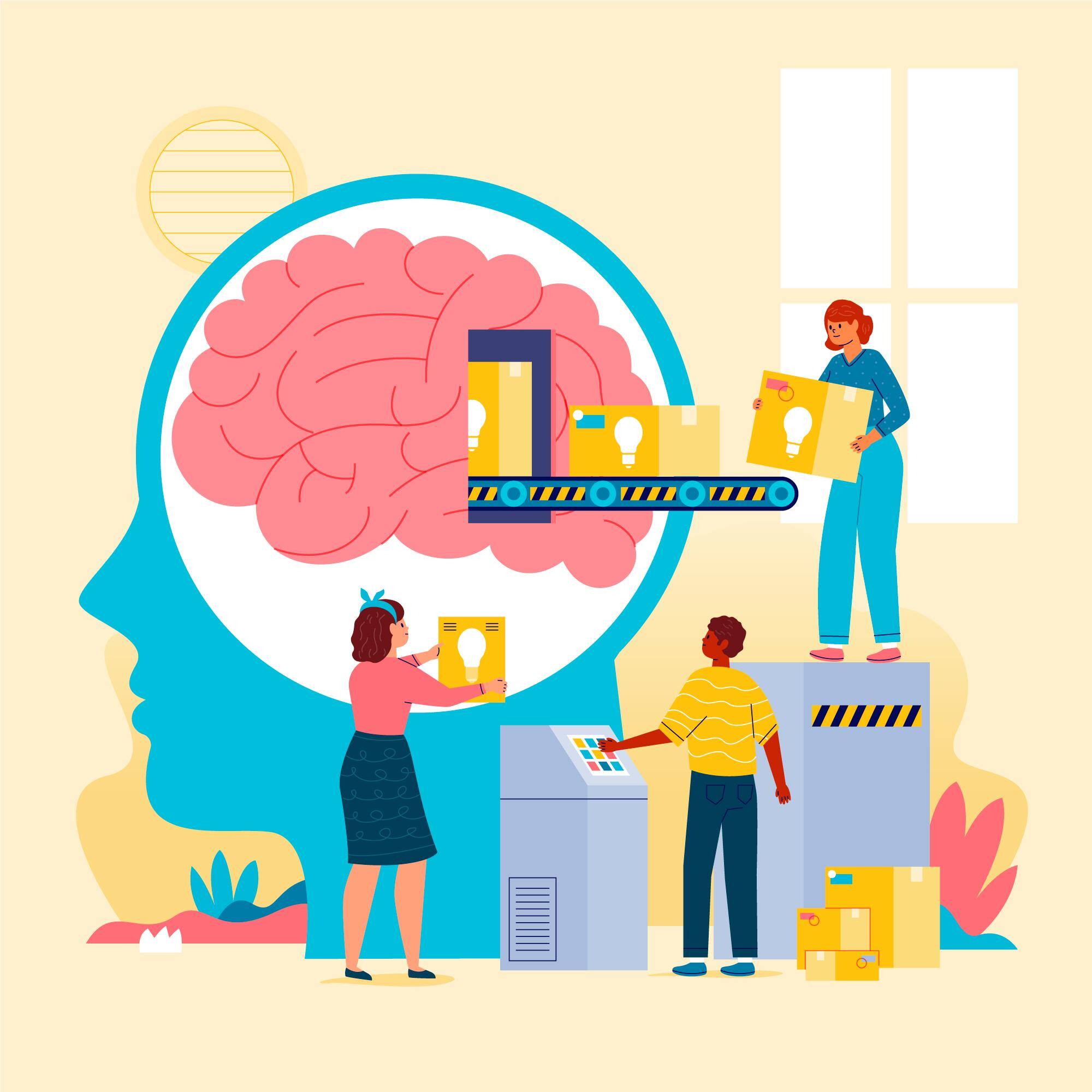Technology is changing. Modern consumers demand one thing above all else – convenience. Nowhere is this truer than in workplace learning. Enter the Learning Experience Platform, or LXP. LXP is the term used for software for creating, delivering, and managing learning content and experiences. This can be text, video, audio or any other media – the purpose of the LXP is to deliver your learning experience in the most efficient and engaging way possible.
Though still relatively new, Learning Experience Platforms are quickly becoming the preferred choice for forward-thinking organisations who are looking to invest in their most valuable asset – their employees.
You probably already know that employee development is more important than ever. 59% of young people rank learning opportunities as extremely important when deciding whether to apply to a job. Yet only 29% of employees feel satisfied with the development opportunities provided by their organisations.
Modern businesses can’t afford not to invest in this vital aspect of employee retention. If you want to attract – and keep – the very best people, you have to invest in developing them. LXPs offer a convenient, cost-effective, out-of-the-box way of doing this.
In this comprehensive guide, we will explore:
- What Learning Experience Platforms are
- What benefits they offer
- Key features of LXPs
- How they differ from Learning Management Systems (LMSs)
- Where they are headed in the future.
By the end of this guide, you will have a clear understanding of Learning Experience Platforms and why they are becoming the go-to solution for modern organisations.
What's a Learning Experience Platform?
A Learning Experience Platform (LXP) is any software that is designed to create, deliver, and manage learning content and experiences. In the context we are talking about, this is specifically for workplace LXPs.
Pretty much all workplaces have some form of L+D offering. LXPs are a way to organise and deliver their offerings in one place, on a platform that easy for their people to access.
Previously many businesses opted for Learning Management Systems of LMSs. We’ll go into more detail about why these are different later on, but, in brief, LMSs are more limited in their features. They generally just contain the content – the assessment and social aspects of learning will take place outside of the LMS.
LXPs, on the other hand, contain the whole learning experience. You can develop content, consume content, share it, and sit your assessments all within the same product. LXPs are often referred to as the next generation of LMS, as they offer a more personalised and engaging learning experience for employees.
LXPs are typically cloud-based and offer a user-friendly interface that makes it easy for employees to find and consume relevant content.
Most LXPs offer a variety of features that allow organisations to create a customised learning experience for their employees. These features may include social learning, Gamification, recommended content, and more. The main goal of an LXP is to provide employees with the resources they need to develop the skills and knowledge they need to be successful in their role.
Organisations that implement an LXP can expect to see an increase in employee engagement and satisfaction, as well as a decrease in time-to-competency.
What are the benefits of Learning Experience Platforms?
There are many benefits of investing in a Learning Experience Platform for your organisation. Some of the most notable benefits include:
1. Increased employee engagement and satisfaction
LXPs offer a more personalized and engaging learning experience for employees. Rather than just being told ‘here’s a library of content, go off and learn from it’, they can engage in a whole experience. LXPs also tend to encourage employee-led learning, which is proven to be more engaging.2. Improved knowledge retention and application
LXPs make it easy for employees to find and consume relevant content, which leads to improved knowledge retention and application. Most LXPs are cloud-based – users can access the content when and where they want. Spaced repetition is the best way to remember new knowledge, and it’s much easier when you can access your learning content for a quick reminder whenever you need it!3. Reduced time-to-competency
Most LXPs offer features that allow organisations to create a customised learning experience for their employees. This means that they can create learning experiences that cut straight to the chase. One of the biggest obstacles to making workplace learning a quick process is unwanted, bulky courses. LXPs allow you to streamline your offerings.4. Increased ROI
The above benefits mean that the return on investment can be huge from LXPs. Often LXPs can seem more expensive than LMSs. But because they contain the whole learning experience within one convenient product, they can save businesses heaps of hidden costs.Key features of Learning Experience Platforms
So we’ve talked a lot about LXPs containing ‘the whole learning experience’. That may sound a little wishy-washy. What’s a ‘learning experience’? Well, there are several features of LMSs that make this happen.
1. User-friendly interfaces
It’s hard to overstate the value of a clean, simple UX for workplace learning. People often associate workplace learning with something boring and pointless. The best LXPs are able to overcome that initial resistance with fun, social-media style interfaces that just work.
2. Social learning
The platform should offer social learning features that allow employees to connect with each other and share knowledge. Tagging, sharing, reposting interesting stuff – all of this has a palpable effect on learner engagement.
3. Gamification
Many LXPs offer gamification features that make learning fun and engaging for employees. Adding a bit of competition – both with themselves, through personal streaks and goal-setting, and with their teammates, through monthly competitions and leaderboards – has a proven positive impact on the learning experience.
4. Recommended content
LXPs should offer recommended content features that allow employees to easily find relevant content. Using the right algorithm, LXPs can actually automate a huge amount of the research and curation work that L+D managers have had to do in the past. This means that every learner can be offered an experience that is personalised to them, their role, and their interests.
5. Customisation
In addition to providing curation services, good LXPs should be customisable to allow organisations to create a unique learning experience for their employees. This means that organisations can push the right training materials to their teams if needs be, or even upload their own content and decide who in their company should receive that in their recommendations.
Learning Experience Platforms vs Learning Management Systems
When considering a Learning Experience Platform for your organisation, it is important to understand how they differ from Learning Management Systems (LMS).
LMSs are systems that are used to deliver employee learning – simply delivering the content and nothing more. They are typically used to deliver compliance-based training. Think services your company signs you up to teach you about regulatory information, or even the dreaded health and safety.
On LMSs you consume some content, and perhaps occasionally carry out some assessment. But in general it’s a passive experience, and requires external supporting processes if you want to incorporate social learning or gamification.
LXPs, on the other hand, are systems that are used to create, deliver, and manage engaging learning content and experiences. Rather than just giving you a load of content, LXPs are smart solutions that personalise their content delivery. They offer the opportunity to carry out all of your learning in one place.
As cloud-based apps, they also mean that you can do all of this, anywhere, anytime.
Some key differences between LXPs and LMS include:
- LXPs are designed to be more engaging and motivating for employees, while LMS are designed to be more administrative and compliance-based.
- LXPs offer a more personalised learning experience, while LMS offer a more one-size-fits-all approach.
- LXPs are typically cloud-based, while LMS are often on-premise.
The Future of Learning Experience Platforms
The future of Learning Experience Platforms is very promising. People are generally fed up with LMSs – they’re bulky, old-school, and often feel like a waste of time. As users become more and more accustomed to an ‘always on’ style of consuming content (most of us are swiping through TikTok and Instagram dozens of times a day), the old approach of LMSs is going to feel increasingly like a chore.
From an organisational standpoint there is also a huge amount to be gained by using LXPs. Organisations that invest in an LXP can expect to see increased employee engagement and satisfaction, as well as improved knowledge retention and application.
They are also able to nail their whole L+D requirement in one convenient product. Researching and procuring multiple products and services for L+D can be a painstaking and expensive process. With a high-quality LXP you can simply get it out the way adn rest assured that your people are getting the learning they need.
It can also be far cheaper to use an LXP in the long run – even if the upfront costs are more expensive. This is partly because good LXPs cover all your learning requirements – no need to supplement with any further assessment or workshops. But the real cost-saving comes from the proven increase to retention, and heightened productivity, that an engaged culture of learning brings to organizations. Hiring new people is costly – and well-trained employees can produce work that is 10x better.
For all of these reasons, LXPs are quickly becoming the preferred choice for forward-thinking organizations who are looking to invest in their employees.
5Mins is an all-in-one LXP that provides the most seamless learning experience available. Sharing, gamification, short-form lessons – it all just works. Check it out!




